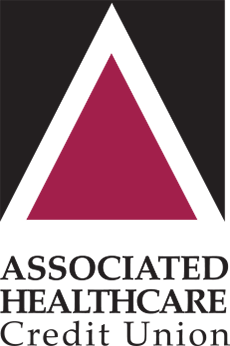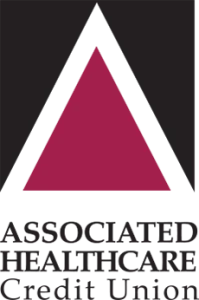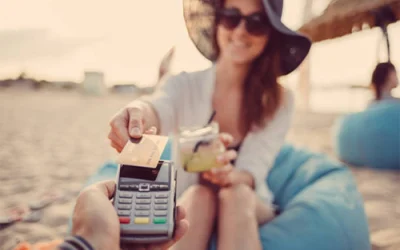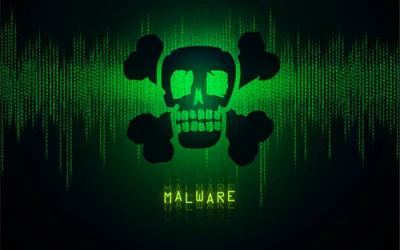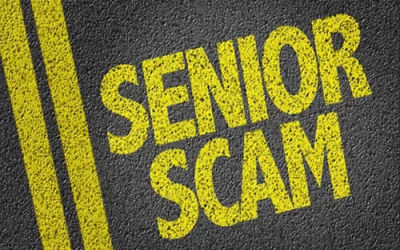Fraud Prevention and Help
The internet has opened up a world of possibilities, but it also brings new challenges. As scams become increasingly sophisticated, it's crucial to stay informed and vigilant. Here are some resources and tools to help you protect you and your family.
Learn How Scammers Trick Individuals
With the rise of email, phone, and text message scams pretending to be from your credit union or other trusted entities, it's essential to recognize the warning signs. Scammers may threaten to lock your account unless you "click here to re-enter your password" or promise large sums of money if you "complete a survey and provide your account details."
These scams can be convincing, but knowing how to distinguish the real from the fake is key.
AHCU will never ask for your account number, full Social Security number, or other personal information via phone call, email, or text. If you receive such a request, don’t click on a link or DO hang up. Then, call us at 651-383-4000 as soon as possible to alert us.
Protect Yourself: Understand and Use AHCU Fraud Prevention Tools
Protecting yourself from fraud starts with our tools. Here are some ways AHCU helps you stay safe:
- Mobile Banking App: Check your accounts for suspicious activity anytime, anywhere.
- Card Manager App: Freeze your debit or credit card immediately if you notice unauthorized transactions or if your card is lost.
- Fraud Alert Systems: We monitor your accounts for suspicious activity and will contact you if we detect anything unusual. We will never ask you for your social security number, account number, balance or anything of that nature. Contact us if you come across anything suspicious.
Stay proactive and use these tools to safeguard your financial well-being. For more information or assistance, contact AHCU today.
Automated Fraud Alerts
You may receive a pre-recorded or personal phone call about flagged card transactions. Your prompt response helps us protect your account and prevent fraud.
Benefits of Automated Fraud Alerts
- Early Detection: Fraud is identified sooner, allowing you to respond immediately via your phone.
- Immediate Unblocking: If the transactions are valid, your response will unblock the card right away. Otherwise, you'll be prompted to start the fraud report process and a new card will be ordered.
- Increased Contact Attempts: Automated alerts increase the number of attempts to reach you about a fraud alert, to help both of us respond quickly to protect your accounts.
Sample Fraud Alert Messages
Since scammers also sent text messages, here are examples of our fraud alert text messages.
Initial Fraud Text: Here’s an example of the initial text from our fraud department:

NO Response: A “N” response will trigger the following text:

YES Response: A "Y" response will trigger the following text:

Tips for Identifying and Avoiding Fraud
Avoid Clicking Suspicious Links: Fake websites and false phone numbers are easy to set up. If you’re suspicious about a message from AHCU, use contact information from your records to follow up.
Too Good to Be True: Be wary of unknown entities asking for Cashier’s Checks, gift cards, or money transfers. Fake prizes, charities, and love interests often circulate online.
Verify Requests: Any email requesting to confirm, update, or provide your account information is likely a scam. If unsure, call AHCU directly.
If You or a Loved One Fall Prey...
Cancel Credit Cards: Immediately cancel your credit cards. Keep your card numbers and the issuers' contact numbers handy.
File a Police Report: Report the theft to the police in the jurisdiction where your items were stolen. This helps prove your diligence to credit providers and initiates an investigation.
Contact Credit Reporting Organizations: Place a fraud alert on your name and Social Security number by calling Equifax: 1-800-525-6285; Experian (formerly TRW): 1-888-397-3742; and Trans Union: 1-800-680-7289.
Notify the Social Security Administration: Call the fraud line at 1-800-269-0271 and file a complaint with the Social Security Administration
Notify AHCU: We are always looking out for our members and are here to protect.
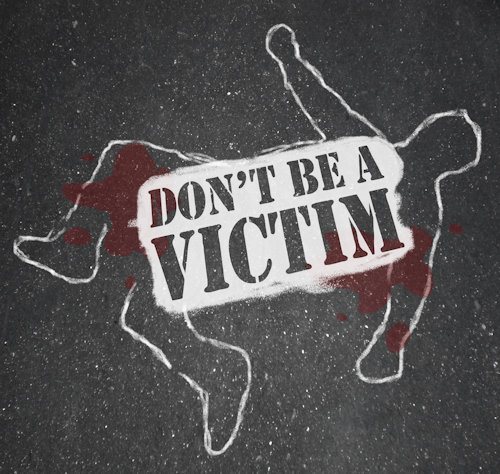
If you have any questions or need assistance, contact AHCU for support. We're committed to your financial well-being and security.
Online Transactions are Safer
Using Online Banking ensures that your payments are secure and reach the right destination, unlike checks that can be intercepted from your mailbox. With our Mobile App, you can even deposit checks remotely, adding another layer of convenience.
Best of all, our digital banking services provide 24/7 access to your accounts, allowing you to quickly spot and report any suspicious activity. You will also have control to turn off or on your accounts with a swipe of a button. Stay in control of your finances anytime, anywhere!
Beware: ATM Surcharges and Skimmers
Be cautious about the ATMs you use. ATMs in remote locations are less frequently inspected and are prime targets for card skimmers.
A card skimmer is a device that criminals attach to ATMs, gas station pumps, or other card readers to steal information from the magnetic stripe on your debit or credit card. When you swipe your card, the skimmer captures and stores your card's data, which the thief can later use to make fraudulent transactions. Some skimmers are equipped with hidden cameras or keypad overlays to capture your PIN as well.
Additionally, using unknown ATMs can result in hefty surcharge fees.
AHCU offers thousands of surcharge-free ATMs and a Shared Branch network, allowing you to perform transactions at numerous credit unions nationwide as if you were at home.
You can also avoid surcharges by getting cash back using your AHCU debit card at many store locations. Stay safe and save money with AHCU’s convenient options.
Financial Wellness Starts Here
Do You Know How Your Payment Cards Work When You Travel?
Save more when you travel by knowing the right card card – or cash- to use and when. Planning ahead can save big money on travel transactions.
Protect Your Computer from Becoming Part of a Botnet
Is there a zombie in your house? Learn how to protect your computer from becoming part of a botnet, and what exactly this means.
Cyber Crooks and Retirement Accounts
Cyber crooks and retirement accounts are a scary combo, since people seldom check the balance in these accounts.
